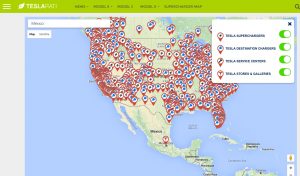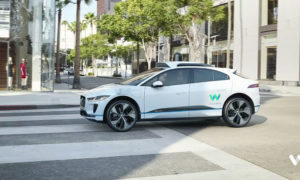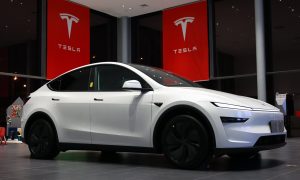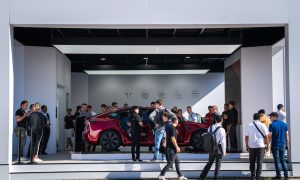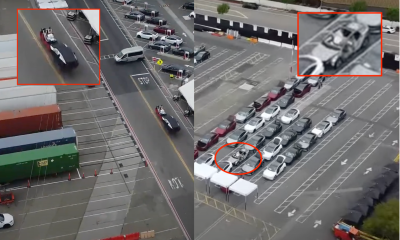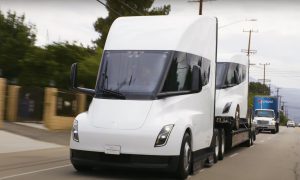News
Tesla’s upcoming Supercharger in Mexico revealed by QR code
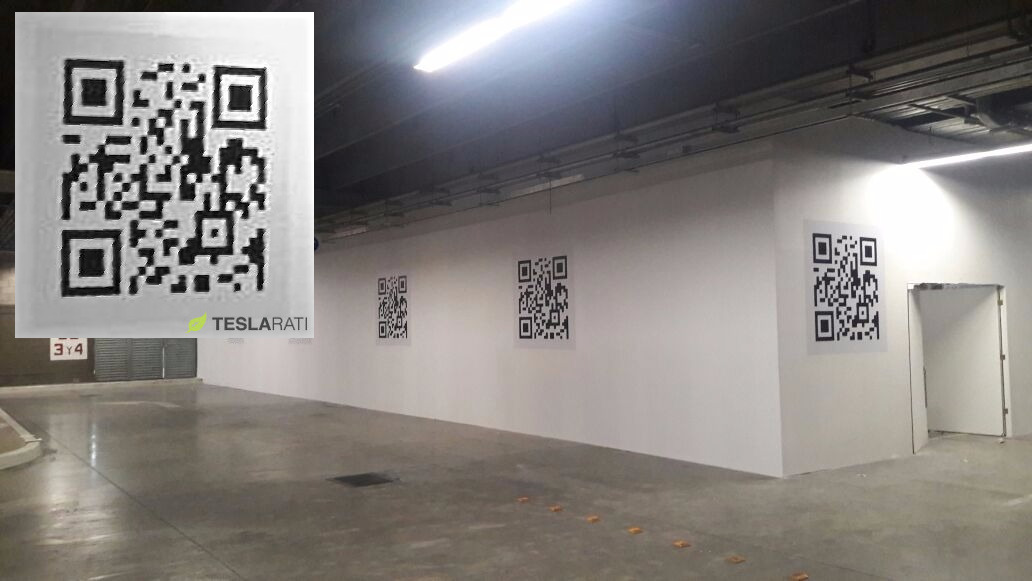
If rainbow road and rainbow charge port weren’t enough, a new Tesla pseudo-easter egg has just been discovered this time revealing the company’s plans to expand its Supercharger network into Mexico.
The news comes after a tipster sent us a photo of a relatively unassuming parking garage that was adorned with QR codes pasted to the wall behind each parking space. Our informant stated that the QR code pointed to a past tweet made by Tesla CEO Elon Musk.
Given the small size of the image and the distorted proportion of the QR code within it, we weren’t able to validate the claim. But sure enough once we blew up the image and readjusted the QR code to resemble a square, a quick scan led us to Elon’s Tweet from April 3.
The tweet aimed at Musk asked whether any of the company’s rapidly expanding network of fast charging Superchargers were coming to Mexico, to which he confirmed with a simple “yes, coming this year”.
When we reached out to Tesla for comment about the photo, in specific whether the photo was a true depiction of the company’s plan to install a Supercharger in Mexico, we were told by the Tesla spokesperson,
“Yes, we can confirm that we are planning on having our first Supercharger in Mexico in Cuernavaca City.”
This information represents a pivotal moment for the fast growing electric car and energy company as it’s the first time we hear Tesla confirming the site for its upcoming Supercharger in Cuervnavaca City – a location 50 mi (75 km) south of the country’s capital of Mexico City where it currently has one store – and it marks the first time the company will break ground on its expanding charging network south of the border.
Tesla’s Supercharger has become a critical component in the company’s goal of providing worry-free long-distance travel to owners of its electric vehicles. With a worldwide network today of 628 Supercharging stations comprised of 3,738 individual high-speed chargers capable of replenishing 170 miles of range in 30 minutes, Tesla has created an immensely valuable charging network that serves as a backbone to the growing number of Teslas hitting the roads. Musk has also announced during the Model 3 reveal that the company would be doubling the number of Supercharging stations and quadrupling its destination charging partners throughout North America, Europe and the Asia-Pacific regions over the next years.
This increase in chargers will ultimately support the 500k vehicles it intends to produce in 2018, and 1 million vehicles by 2020.
News
Waymo considers selling robotaxis to individual owners
Tesla currently offers its Supervised Full Self-Driving to owners of its vehicles, while Waymo is the only company operating paid autonomous ride-hails at this point.
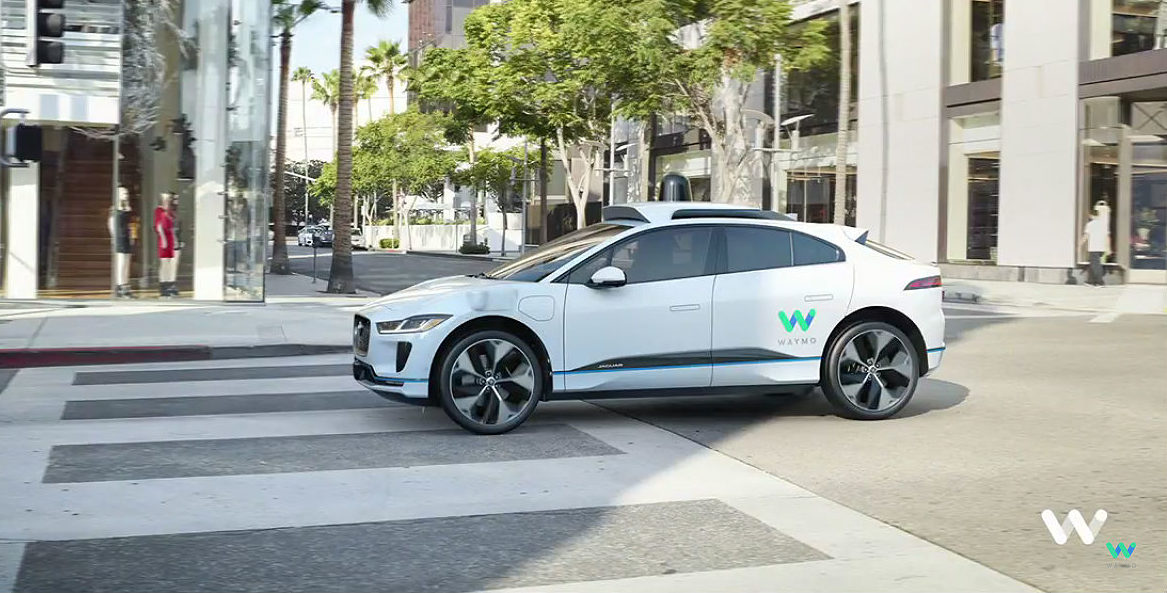
Alphabet-owned robotaxi company Waymo is mulling over the possibility of selling self-driving vehicles to individual owners in the future, as highlighted last week by the Google parent company’s head executive.
On Thursday, Alphabet CEO Sundar Pichai said during the company’s first-quarter earnings update that Waymo would maintain selling self-driving vehicles to individuals as an option in the future, according to a report from Reuters. Pichai didn’t disclose any specifics about the potential to do so or a timeline, though he noted that “there is future optionality for personal ownership.”
Waymo currently operates over 700 self-driving vehicles, 300 of which are operating in San Francisco, and it’s the only company to operate a paid self-driving ride-hailing service as of yet.
The statement comes as Tesla and other companies aim to launch their own commercial robotaxi services, and while the electric vehicle (EV) giant already sells its Supervised Full Self-Driving (FSD) software to individual owners. Additionally, Tesla aims to launch an Unsupervised version in the coming months.
Waymo launched in Austin in January in a unique partnership with Uber, while its self-driving ride-hailing vehicles in California run through its in-house ride-hailing app, Waymo One. It has opened the app to the public in multiple areas of Los Angeles and in cities surrounding and including San Francisco. The company also dropped the need to sign up for a waitlist to use the service in Los Angeles in November, after doing so in the Bay Area earlier that year.
The Alphabet-owned firm also started initial testing in Japan earlier this month, marking the company’s first time in an international market.
Waymo is setting the stage for its rollout in Tokyo. 🇯🇵
Have you experienced a ride in Waymo's self-driving robotaxis?pic.twitter.com/V7lQf1CMjD
— TESLARATI (@Teslarati) April 10, 2025
READ MORE ON WAYMO’S ROBOTAXIS: Here’s where Waymo is launching autonomous robotaxis next
Tesla is targeting a launch its first commercial robotaxis and Unsupervised FSD around Austin in June, and CEO Elon Musk reiterated this goal during the company’s Q1 earnings call on Tuesday. When asked about how Tesla expected its commercial robotaxi services would compete with Waymo, which is already operating paid driverless rides in multiple cities, Musk highlighted how costly the company’s cars are to produce:
The issue with Waymo’s cars is it costs way more money, but that is the issue. The car is very expensive, made in low volume. Teslas probably cost 25 percent or 20 percent of what a Waymo costs, and are made in very high volume.
So, ironically, we’re the ones to make the bet that a pure AI solution with cameras, and what do you have? The car actually will listen for sirens and that kind of thing. It’s the right move.
And Waymo decided that an expensive sensor suite is the way to go, even though Google is very good at AI.
Musk also went on to predict that Tesla would eventually capture at least 90 percent of the robotaxi market, or potentially as much as 99 percent, with millions of cars on the road that are already able to run FSD.
He also highlights that Tesla’s vehicles at both the Gigafactory in Austin, Texas and the Fremont, California plant can drive themselves fully autonomously from the end of the production line to the outbound lot. Musk also said that he was “confident” that the first Model Y units to drive themselves to the customer will take place later this year, from both the Fremont and Austin factories.
Ex-Waymo CEO dismisses Tesla, Cybercab: “They’re a car company with a driver-assist system”
News
Tesla China’s rumored Model Y “E80” variant: Alleged price, features, and more
The vehicle will reportedly be a more affordable variant of the best-selling Model Y crossover.
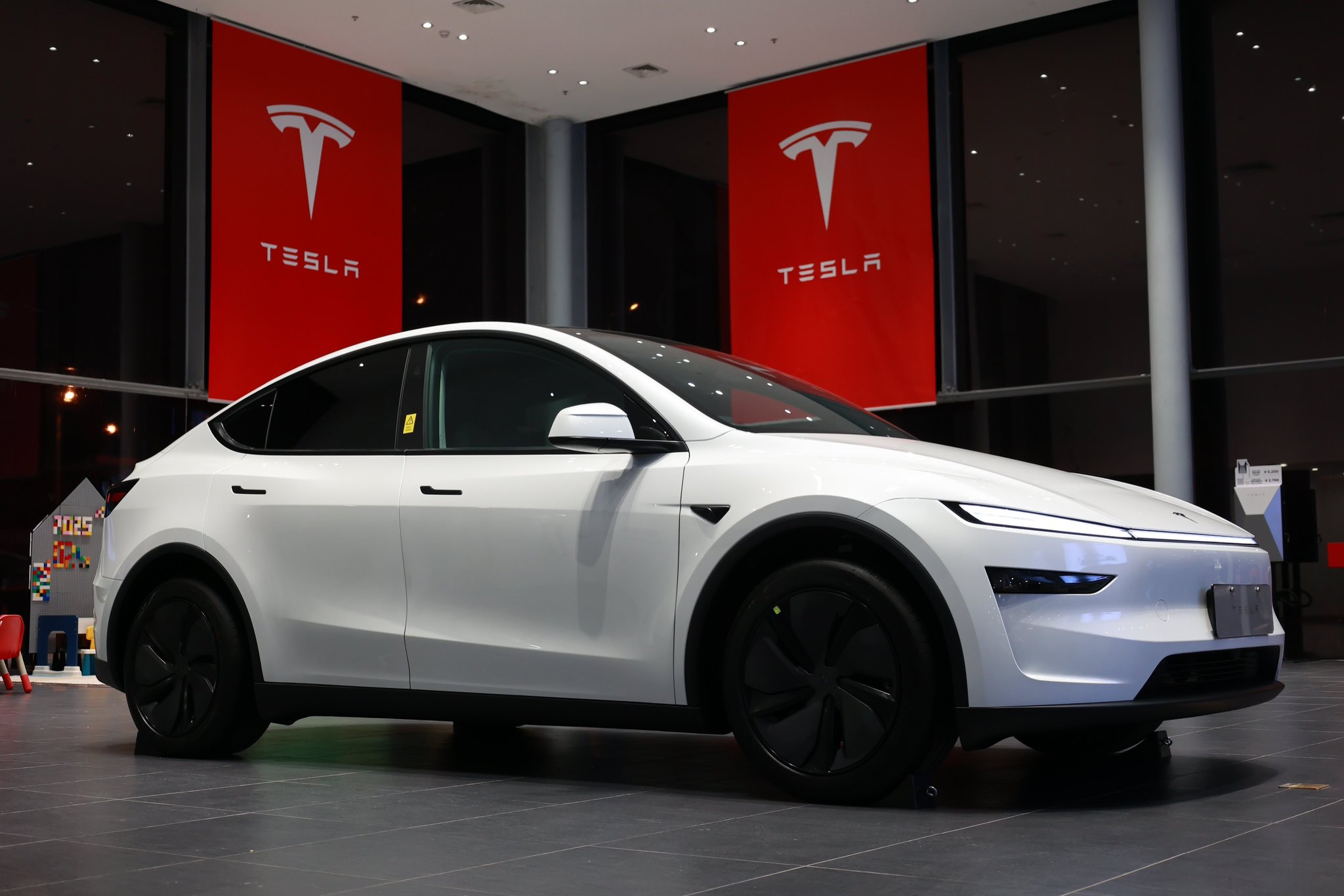
Recent reports from Chinese social media and news outlets have shared some rumors about an upcoming vehicle that Tesla China is reportedly developing.
Rumored to be internally codenamed as “E80,” the vehicle will reportedly be a more affordable variant of the best-selling Model Y crossover.
The Model Y “E80” Rumors
As per the recent rumors, which were initially posted on Chinese social media, the Model Y “E80” will reportedly be equipped with a 50-55 kWh battery. The vehicle’s launch will reportedly be determined by the market performance of the new Model Y, though some rumors suggest that its rollout could be as early as the second half of 2025, or sometime in 2026.
Rumors about the vehicle’s price are varied, with some news outlets stating that the “E80” will be priced at around 150,000-170,000 yuan ($20,500-$23,300), while others cited a price of 190,000–210,000 ($26,000–$28,800). For context, the new Model Y in China today is priced at 263,500-313,500 yuan ($36,160-$43,000) depending on its variant.
Being an affordable variant of the new Model Y, he “E80” will reportedly be quite different from its more premium siblings. The vehicle will reportedly be fitted with smaller wheels, single-layer windows on its sides, no rear display, half the number of speakers, single-color ambient interior lighting, fabric seats with no heating or ventilation functions, a manual trunk, and a metal roof.
Rumored, But Not Farfetched
While these rumors about the alleged Model Y “E80” from China are not confirmed at all, Tesla has released a pretty similar, stripped-out variant for one of its current vehicles—the Cybertruck. Just recently, Tesla introduced the Cybertruck Long Range Rear Wheel Drive (LR RWD), which costs $10,000 less than the Cybertruck All Wheel Drive (AWD). The vehicle featured smaller wheels, fabric seats, less than half the number of speakers, and no rear display, among others.
A more affordable Model Y was teased by Tesla VP of Engineering Lars Moravy, who noted that Tesla’s affordable models will likely resemble the company’s current products. “Models that come out in next months will be built on our lines and will resemble, in form and shape, the cars we currently make. And the key is that they’ll be affordable, and you’ll be able to buy one,” Moravy stated during the Tesla Q1 2025 earnings call.
News
NY Democrats are taking aim at Tesla direct sales licenses in New York
Democratic Senator Patricia Fahy is pushing to revoke a legislative waiver that allows Tesla to operate five NY locations without using dealer franchises.
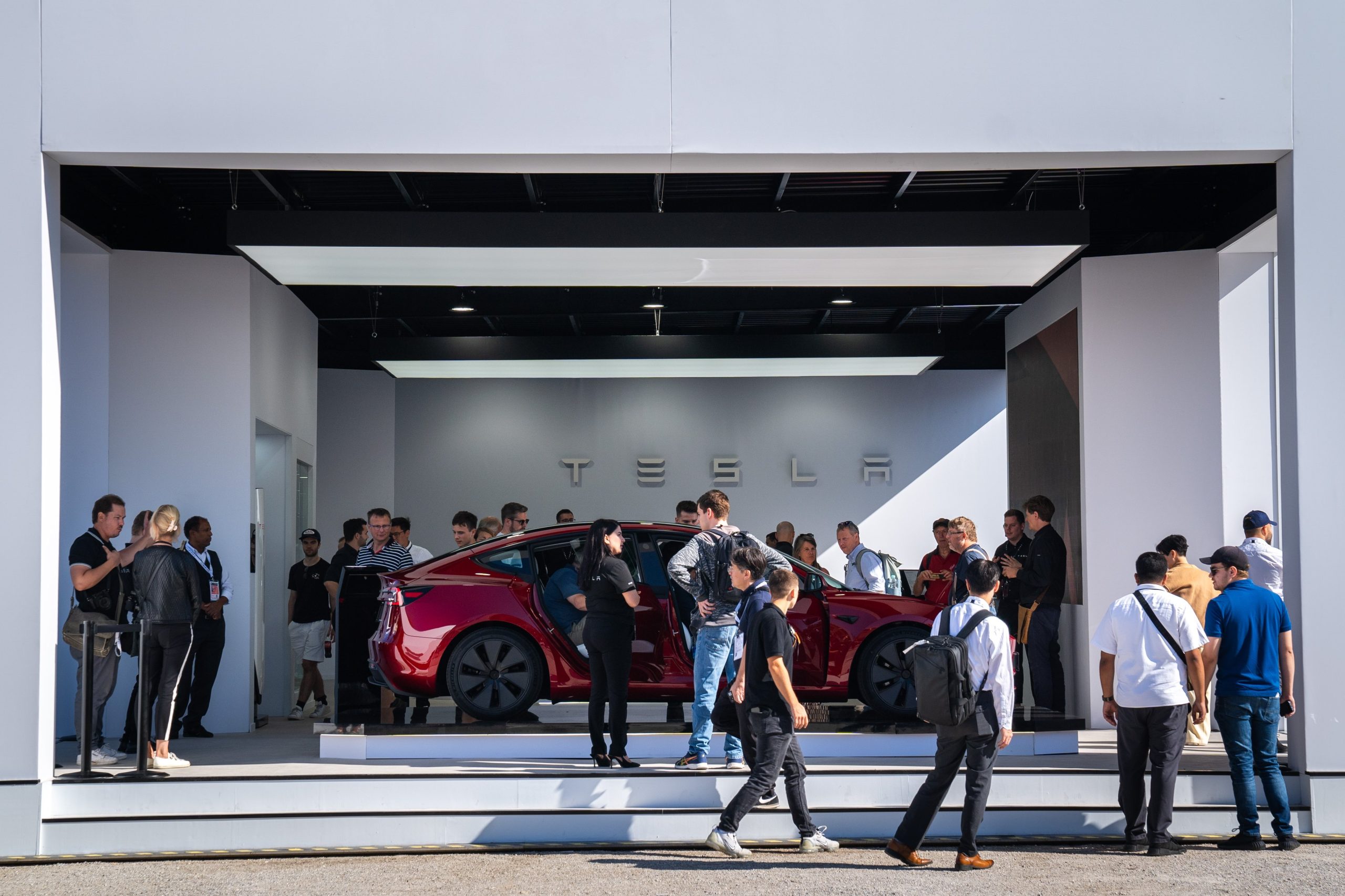
Democratic New York State Senator Patricia Fahy, once a Tesla ally, is currently pushing to revoke a legislative waiver that allows the electric vehicle maker to operate five New York locations without using dealer franchises.
Fahy cited CEO Elon Musk’s role in President Donald Trump’s administration as a reason for her change of heart.
Fahy’s Shift in Stance
For 12 years, Fahy frequently supported Tesla’s fight to bypass New York’s franchise dealer regulations. But after Elon Musk personally took Donald Trump’s side, and after he worked as part of the Department of Government Efficiency (DOGE), Fahy no longer supports the EV maker. Apart from her anti-Tesla efforts in the State Capitol, the Senator has also participated in demonstrations against a planned Tesla dealership in Colonie, as noted in a report from the New York Times.
“Maybe I’m making amends,” Fahy stated, describing Musk as “part of an administration that is killing all the grant funding for electric vehicle infrastructure, killing wind energy, killing anything that might address climate change. Why should we give them a monopoly?”
Fahy has introduced legislation that would effectively end Tesla’s direct sales operations in New York, as noted in a Syracuse.com report. Her bill argues that Tesla’s legislative waiver provides the EV maker with an unfair advantage. Thus, Fahy wants Tesla to forfeit its five licenses by 2026. The licenses could then be redistributed to other EV makers that also sell directly to consumers, such as Rivian, Lucid, and Scout Motors.
Republican Opposition
Republican New York Senator Jacob Ashby has described Senator Fahy’s bill as misguided, arguing that the “government should not be picking winners and losers on this.” Ashby also noted that “political disdain seems to be more at play. We are not recognizing the power and implications of the process that we have and that we should trust it.”
Colonie town supervisor Peter Crummey, also a Republican, stated that “though political sentiments appear to have recently changed for some folks about Tesla’s founder, people should let the Planning Board do their work.” As for requests from state legislators who are inserting themselves into the Tesla issue, Crummer noted that “I am confident we will give them the weight it deserves.”
-
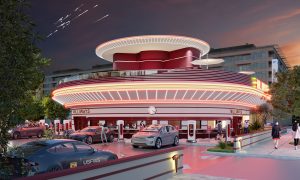
 News6 days ago
News6 days agoTesla’s Hollywood Diner is finally getting close to opening
-
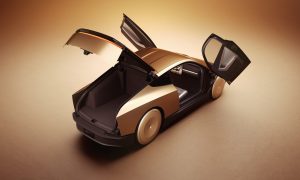
 Elon Musk1 week ago
Elon Musk1 week agoTesla doubles down on Robotaxi launch date, putting a big bet on its timeline
-

 News2 weeks ago
News2 weeks agoTesla’s top investor questions ahead of the Q1 2025 earnings call
-
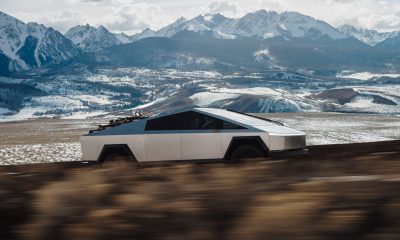
 News3 days ago
News3 days agoTesla is trying to make a statement with its Q2 delivery numbers
-

 News2 weeks ago
News2 weeks agoUnderrated Tesla safety feature recognized by China Automotive Research Institute
-
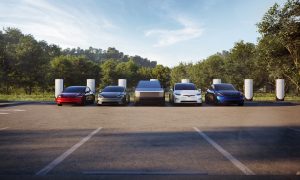
 News2 weeks ago
News2 weeks agoThese were the best-selling EV brands in the U.S. in Q1
-
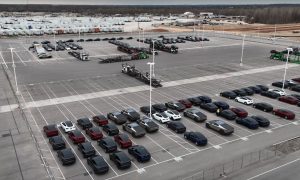
 News2 weeks ago
News2 weeks agoTesla’s vehicles led U.S. EV sales again last quarter: report
-
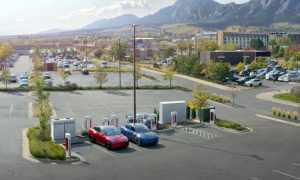
 News2 weeks ago
News2 weeks agoTesla reveals its Q1 Supercharger voting winners, opens next round


